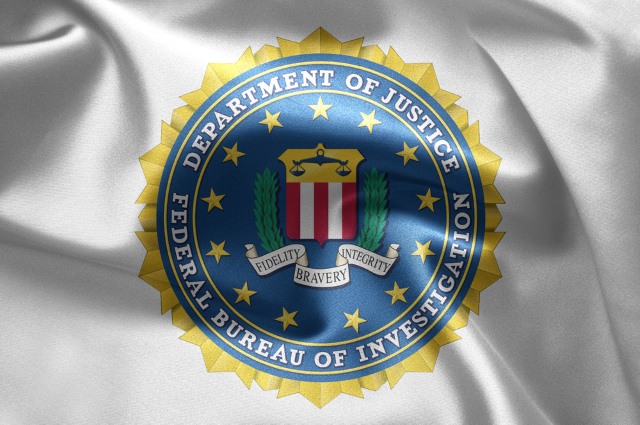
AlphaBay Market disappears from the dark web as blockchain records show huge Bitcoin withdrawals
Dark web users fear that AlphaBay Market may have disappeared for good after an unexplained period of downtime. The site -- described as a successor to Silk Road -- is a marketplace for a myriad of illegal wares including drugs and guns, and speculation is rife that the admins may have made off with users' money.
While maintenance-related downtime is not unusual, this time around there has been no word from admins, and suspicions have been further raised after Bitcoin worth around $3.8 million was withdrawn from numerous accounts. Some users are worried that admins may have "pulled an exit scam."

The value of information on the dark web
We're all familiar with the concept of the dark web where information gained from hacks and data breaches is traded amongst cyber criminals. But just how much are your identity and account credentials worth?
Password manager and digital vault app Keeper Security has produced an infographic looking at how much various pieces of information trade for.

Majority of vulnerabilities appear online before official databases
New research from threat intelligence company Recorded Future reveals that of 12,500 disclosed Common Vulnerabilities and Exposures (CVEs), more than 75 percent were publicly reported online before they were published to the NIST's centralized National Vulnerability Database (NVD).
Sources reporting include easily accessible sites such as news media, blogs, and social media pages as well as more remote areas of the internet including the dark web and criminal forums.

How the dark web creates a fraud pandemic
The statistics continue to chill. Two point three million estimated fraud victims in the UK alone in 2015 according to the ONS. 173,000 confirmed reports of identity theft amongst CiFas members (largely utilities and finance companies) in 2015.
From a consumer perspective the chances are that over a period of three to four years you are now more likely than not to be a victim of a successful fraudulent act of some kind.

The Dark Web isn't really as safe as criminals think
You aren't really safe on the Dark Web. That runs counter-intuitive to the reason for its existence. Then again, it isn't really the kind of place you want to go anyway. It's a series of sites that exist on darknets, an overlay network designed to keep things hidden and with good reason -- it's usually used for criminal activity.
But if you know how to get there then you can make some money -- selling drugs, weapons, malware and anything else that can cause harm.

What the rise of the darknet could mean for you
The darknet can be described as the internet black market, home to sites that sell drugs, weapons, leaked security data, and even assassins -- and it’s so well-organized, it’s practically the dark cousin of Amazon.
In simple terms, it operates like a ghost. The websites within it coexist with the rest of the internet, but are inaccessible unless you have the software to open a window for you between realms. For example, this is a darknet URL: http://dppmfxaacucguzpc.onion/. If you have Tor -- the software designed to grant you access to the darknet -- it will lead you to the Tor webpage. If you don’t, it leads absolutely nowhere. On darknet, you’re untraceable and completely anonymous.

Alleged Silk Road administrator must be extradited to the US from Ireland
When the net closed around Silk Road, many thought it spelled the end of the black market trade on the dark web. Of course, this did not turn out to be the case, so hopes were pinned on holding those responsible for the site to account.
The founder of the site has already been charged, and now authorities are after those who acted as admins. One such target is Irishman Gary Davis, and an Irish court has just ruled that he should be extradited to the US to face hacking, drug trafficking and money laundering charges.

O2 customer information available for sale on the dark web
O2 customer data has been found available for sale on the dark web, most likely as a result of a hack that occurred several years ago.
The gaming website XSplit was hacked three years ago and those responsible for the hack were able to obtain usernames and passwords from the site. Through the process of credential stuffing, in which account credentials acquired through a hack are tested on multiple websites, the hackers were able to gain access and log into O2 accounts.

Malicious computers are spying on Dark Web users on Tor
For people concerned with their privacy the Dark Web and Tor seem like natural bedfellows. Not for the first time, concerns are currently raised that Tor may not be anywhere near as anonymous as users might like to think, with researchers saying they have discovered dozens of computers engaged in surveillance of the Dark Web.
Computer scientists from Northeastern University used honeypot addresses to identify over 110 malicious machines storing identifying information about users accessing .onion addresses via Tor. At the moment it is not clear whether data gathered by the computers has been used to identify individuals, but the possibility exists.

Hackers using bot armies for financial gain
A new security report by digital identity company ThreatMetrix says hackers are using a large army made out of "automated cyber robots", or bots, for financial gain.
Their Q1 2016 report, entitled Q1 Cybercrime Report, says there have been 311 million bot attacks detected and stopped in this year’s first quarter.

Google wants to drive ISIS from the open internet to the dark web
You can say what you like about ISIS, but it certainly knows how to do propaganda. In fact, the group can pretty much sit back with its feet up -- when it's not busy, you know, killing people in increasingly horrific ways -- as web users the world over are only too happy to do the legwork and spread the shocking imagery on its behalf. But Google has had enough and wants to drive ISIS from the web to the dark web.
While many would question the value of pushing the terrorist group further underground and encouraged to use ever-more secretive tools, Google believes ISIS propaganda doesn't belong on the open web, but should only be accessible through the like of Tor. Jared Cohen, director of Google Ideas believes it makes sense to drive Islamic State to the dark web to try to blunt its propaganda.

Ransom32 is JavaScript-powered ransomware affecting Windows, Mac and Linux
Cross-platform viruses and malware are something of a rarity, but now there's a first-in-its-class JavaScript-based ransomware that can infect Mac, Windows and Linux. Ransom32 uses the Node.js runtime environment running on the NW.js platform to burrow into the target operating system and hold files to ransom.
While on the face of it, this is just another example of ransomware that encrypts files and seeks Bitcoin payments to decrypt them, it is more than that. The NW.js framework not only allows for cross-platform infections, but also means it is harder to detect. Ransom32 bears some resemblance to CryptoLocker and has been dubbed Ransomware-as-a-Service.

The price of de-anonymization -- FBI paid $1m to Carnegie Mellon to crack Tor
Tor has long been thought of as offering a level of privacy, security and anonymity that enables people to do whatever they want online; it also facilitates access to the so-called Dark Web. Despite this, law enforcement agencies were able to crack Tor and identify a Silk Road 2.0 user. Now it seems that the FBI was helped out by researchers at Carnegie Mellon University.
It was previously known that the FBI tracked down Brian Richard Farrrell using information from a "university-based research institute". The Tor Project itself believes that the FBI paid researchers at the university at least $1 million to attack the network and gather data from Tor relays that could be analyzed and used to identify users' IP addresses.

The next target for surveillance: the dark web
The surveillance activities of the NSA and GCHQ are well known, and many people hoping to slip under the radar have taken to the 'dark web'. Famous for sites such as Silk Road, as well as being home to illegal content such as child pornography, the dark web may not be a safe haven for much longer.
Joint Operations Cell (JOC) is a new venture in the UK which sees the National Crime Agency (NCA) and GCHQ joining forces. Described as a "genuinely innovative development", the operation aims to home in on online criminals, with a particular focus on crimes involving child exploitation.

Life imprisonment for Silk Road creator Ross Ulbricht
There are lots of online services and sites that quickly become notorious; the Pirate Bay and Napster to name but two. But Silk Road was something in a completely differently league. Found on the dark web, the site acted as a portal to drugs and other illegal goods. It started life back in 2011 and today its founder, Ross Ulbricht is sentenced to life in prison, a year and a half after his arrest.
Ulbricht was found guilty at a jury trial three months ago and today Judge Katherine Forrest said that Silk Road demonstrated he believed he "was better than the laws of this country". She said "this is deeply troubling, terribly misguided, and very dangerous" before handing down the harshest sentence available.
